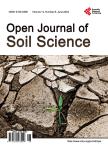Review and Analysis: Evaluation of the Impacts and Consequences of Using Agricultural Herbicides as Military Chemical Weapons in Second Indochina War
Review and Analysis: Evaluation of the Impacts and Consequences of Using Agricultural Herbicides as Military Chemical Weapons in Second Indochina War作者机构:USDA Resource Conservationist and Agricultural Consultant with Natural Resource Conservation Service and Foreign Agricultural Service Benton Missouri USA College of Agricultural Consumer and Environmental Sciences University of Illinois Urbana USA
出 版 物:《Open Journal of Soil Science》 (土壤科学期刊(英文))
年 卷 期:2024年第14卷第8期
页 面:471-498页
学科分类:0202[经济学-应用经济学] 02[经济学] 020205[经济学-产业经济学]
主 题:Second Indochina War Cambodia Laos South Vietnam Vietnam War Tactical Herbicides Agent Blue Agent Orange Agent Purple Dioxin TCDD Arsenic
摘 要:The legacy of the human misery caused by the application of the herbicides including Agent Purple and Agent Orange contaminated with unknown amounts of dioxin TCDD and Agent Blue, the arsenic-based herbicide, sprayed over the jungles, rice fields, and hamlets of Vietnam is still haunting us today. Why did this happen? Could it have been prevented? Was it necessary United States military strategy? Was it an intentional decision to inflict this blight on the enemy soldiers and the Vietnamese, Cambodian, and Laotian civilians, to poison their land and cause generations of harm? Alternatively, was it an unpreventable accident in the march of military history? What patterns in the U.S. government’s thought process could be identified as the cause, which led to the decision to use these herbicides as tactical chemical weapons? If the introduction of herbicide (chemical) weapons had not been made, would the outcome of the Vietnam War and the Secret Wars in Laos and Cambodia have been any different? The objective of this treatise is to outline the role of world events and backgrounds and the role of the leaders, U.S. military, CIA, USDA, U.S. State Department, the U.S. President appointed Ambassadors to Vietnam and Laos, chemical companies, and President Diệm’s Republic of Vietnam (RVN) government and military. Their collective advice led to the decision to use herbicides as military and environmental chemical weapons in the Second Indochina War. Were the National interests achieved by U.S. military strategy in the RVN using herbicide weapons worth the long-term environmental and human health consequences in Vietnam, Cambodia, and Laos? Did it impact the outcome of the Second Indochina War?



